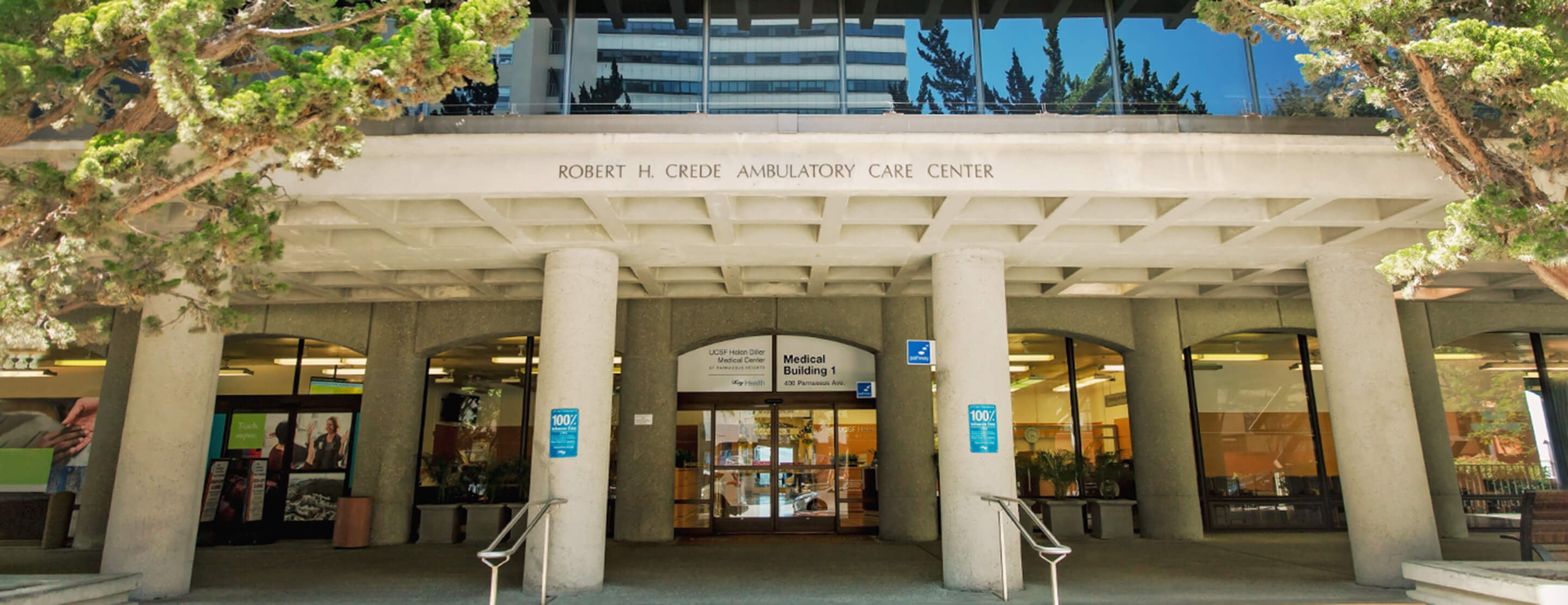Before Russell Colunga was diagnosed with idiopathic pulmonary fibrosis and put on the waiting list for a lung transplant, he worked full-time at San Francisco State University and taught 12 fitness classes a week. On an average day, he'd teach a 6 a.m. spin class, work a full day and return to the gym to teach another class at 7 p.m. "I loved it," he says. "It was my vision of the perfect life."

Russell Colunga: Back from the Brink After Lung Transplant
When did you first notice something was wrong?
In hindsight, the most telling symptom was fatigue. I was bone-tired at the end of the day. I took catnaps between leaving my day job and starting my evening exercise class. I'd never done that before. By the time I came home at night, I didn't know if I could climb the 34 steps from the sidewalk to my front door. I also had a chronic cough and had lost a lot of weight. In retrospect, I was in denial.
Why did you choose UCSF?
I was referred to UCSF after my primary care doctor diagnosed me with restrictive lung disease. My first appointment at UCSF was in January 2011. I met all of these fabulous doctors. They're at the top of their field. You can't help but trust them.
That's when I learned that I had idiopathic pulmonary fibrosis, IPF for short. The doctors at UCSF told me that a lung transplant was my best option. From that point on, I was totally focused on doing what I needed to do to make the transplant list. I never looked back.
Meet Russell's care team
How was your health leading up to the transplant?
In March 2011, I was still teaching 10 fitness classes a week. By the end of each day, I was so cold and oxygen-deprived that my fingers would be blue. By May, I finally had to stop. In early July, I made the lung transplant list. Ten days later I got the call that a set of lungs was available.
What was that moment like?
It was exciting and scary. It's a life-changing phone call. The transplant coordinator called and asked, "Can you be at the hospital in an hour?" I said, "Yes, of course," and a good friend drove my partner and me straight to UCSF.
I'll never forget sitting in Admissions, listening to my partner tell the receptionist, "He's here for lungs! He's here for the lungs!" We were both really nervous.
What was it like to wake up with healthy lungs?
After the surgery, I remember waking up and seeing the anesthesiologist, my sister and my partner standing at the end of the bed. I'd just come off the respirator and my anesthesiologist was trying to get me to talk. He kept asking me, "Who's the greatest anesthesiologist in San Francisco?" I remember taking my first deep breath and saying, "You are." It felt so good to breathe.
How would you describe your experience in the hospital?
I can't speak highly enough about everyone I met. The doctors, the staff, the nurses, the respiratory therapists – they were all there for me.
The nurses in critical care were amazing. They got me up out of bed and walking shortly after surgery. Within 48 hours of my lung transplant, I did three laps around the critical care unit. By the time I was discharged nine days later, I'd walked three-fourths of a mile just in the hospital corridors.
What was it like being in Dr. Kukreja's care?
She was phenomenal. She was both an incredibly skilled surgeon and a very approachable human being. I remember seeing her in the early hours of the morning after my surgery. She was coming in to check on me and she looked like an angel. A few weeks later, I saw her at a hospital event and started to cry. I gave her a hug and told her she'd saved my life.
How are you feeling now?
Fantastic. I forget that I had a transplant sometimes. When you hit the depths of illness and disease, to come back is such a joy.
I go to the gym five days a week. I take a lot of precautions to guard against infections, but it's important for me to continue teaching fitness classes. I love it. I feel good. I don't have any shortness of breath. I don't think I could be doing any better.
The technical expertise of the team, the human body, the determination of the patient – it's all part and parcel of an excellent recovery.
What's your advice to people who are considering a transplant?
Stay as active as you can. The stronger you are going into the procedure, the stronger you'll be coming out. And connect with other patients. My team at UCSF connected me one-on-one with a lung transplant patient and with a support group. That support got me through the last couple of months, when I was at my sickest.
What surprised you most about the experience?
When I was transplanted, I never envisioned the recovery would be as robust as it has been. I never dreamed I would be teaching fitness classes again, and I lead four spin classes and a step class every week. I'm a very fortunate person all around.









